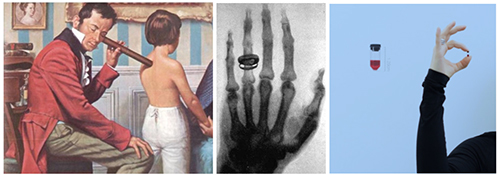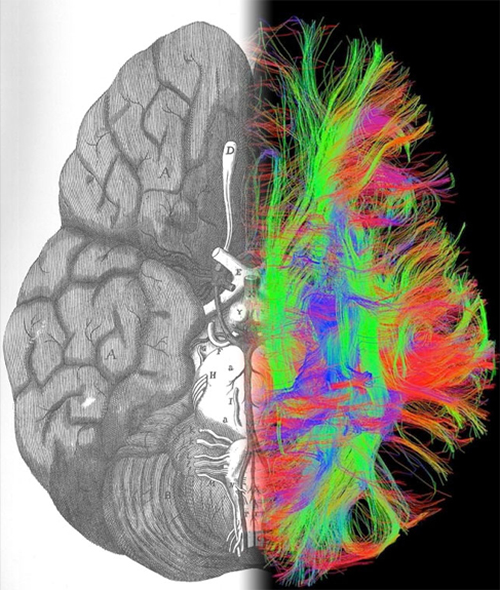Technology and Modern Medicine: From the Stethoscope to Nanotech

Harvard University, Fall 2019
Lecture Course Since the beginning of the nineteenth century, through to the rise of modern ‘biomedicine,’ the healing arts have been profoundly affected by the development, implementation and social construction of new medical technologies. What have been the effects of these new technologies on the practice of medicine, on the conception of our bodies, and on the success of medical care? This course will examine a number of these crucial themes and will integrate insights from the history of medicine and the history of technology more generally. In so doing, we will address a number of related and important historical questions: how do we decide which medical technologies to pursue, and which to ignore? How have we balanced medical progress and technological advancement with a concern for those who are sick now, and for the economics of health care? How and why have medical technologies shaped and been shaped by the broader culture? And, ultimately, has technology been good for medicine?
Topics to be examined will include the rise of clinical medicine in early nineteenth-century France and its reliance on new diagnostic technologies; visual technologies and diagnosis; microscope technology and the emergence of bacteriology; technologies of management and the rise of the modern hospital; the x-ray and the emergence of new diagnostic technologies; the technologies of nursing and other health-care professions; antibiotics, drugs and the technologies of mass-production; technology and disease identity; technology, gender and sexuality; technology, race and genetic medicine; contraception, obstetrics and the technologies of reproduction; digital technologies and the computerization of medical records; implantation, prosthesis, and technologies of the body. Throughout the course, we will pay particular attention to the way in which medical technologies have interacted with social categories such as race, class, gender and nationality, as well as to the unique relationship between American medicine and the world of high technology.
Mind and Brain: Themes in the History of Neuroscience

Harvard University, Spring 2019
Lecture Course This course will examine the development of the neurosciences from the late seventeenth century to the early twenty-first century, with the aim of providing the student with a firm foundation in their historical, philosophical, technical, and cultural contexts. Topics to be examined include the history of brain anatomy and the debates over the ‘seat of the soul’ in the early modern period, debates over materialism, automata and the human brain in the Enlightenment, the origins of ‘neuroscience’ in nineteenth-century debates over phrenology and the localization of mental faculties; the emergence reflex theory and arguments over the evolution of the nervous system; the relationship between ideas about race, gender and brain structure in the nineteenth century; the emergence of neurology and neurosurgery as medical specialties; lobotomy and the debates over psychosurgery; the ‘technological turn’ in the brain sciences and the emergence of ‘neuroscience’ during the Cold War; the birth of modern brain visualizing technologies such as EEG, PET and fMRI; Alzheimer’s, Parkinson’s and other diseases of the nervous system; artificial intelligence and neural networks; and contemporary debates over autism and ‘neurodiversity.’ Throughout the course, we will pay attention to particular key historical themes such as the role of race and gender in the neurosciences, philosophical debates over the nature of ‘mind,’ the role of technology in determining approaches to research and models of brain function, and the experience of neurological patients. This course is lecture-based and aimed primarily at undergraduates.
The Sciences of Memory, Lies, and Pain
Harvard University, Spring 2019

Lecture Course How do we know if a memory is real? How do we know if a person is lying? How do we know how much pain someone is in? Over the course of the nineteenth and twentieth centuries, different disciplines within the human sciences have tried to answer these questions, and in so doing, have tried to pry open the subjective realms of human experience with the objective tools of science. How successful have they been, and how have these efforts been rooted in their particular time and place?
This course will explore a number of key themes in the modern brain and mind sciences by tracing how different scientific fields (neuroscience, psychology, psychoanalysis and cognitive science) have understood distinctly human experiences such as memory, deception and truth, and physical and mental pain over the nineteenth and twentieth centuries. While these human experiences are distinct, the history of scientific attempts to understand them reveals surprising overlaps of tools, techniques, and theoretical preoccupations. In attempting to peer into the subjective realms of human experience, scientists who examined memory, lies and pain frequently exposed their own internal suspicions, doubts and prejudices. Moreover, the laboratory and clinical sciences that have dealt with memory, lies and pain have frequently sat at the center of numerous high-stakes debates about the relationship between science, the law and society. Topics to be examined include the emergence of memory tests in the nineteenth century; the role of ‘traumatic’ memory in the development of psychoanalysis; the emergence of the neuroscience of memory in the twentieth century; the so-called ‘memory wars’ of the late-twentieth century; the emergence of criminology and nineteenth-century theories of lie detection; the development of the lie detector and its place in the courtroom; cognitive and psychological theories of lie detection, emotion and facial expressions; the emergence of anesthesia and the changed nature of pain in medicine; the development of new theories of pain following World War II; pain scales, analgesics and the sciences of addiction. We will rotate amongst the three topics (memory, lies and pain) each week, and work our way from the mid-nineteenth century to the end of the twentieth.